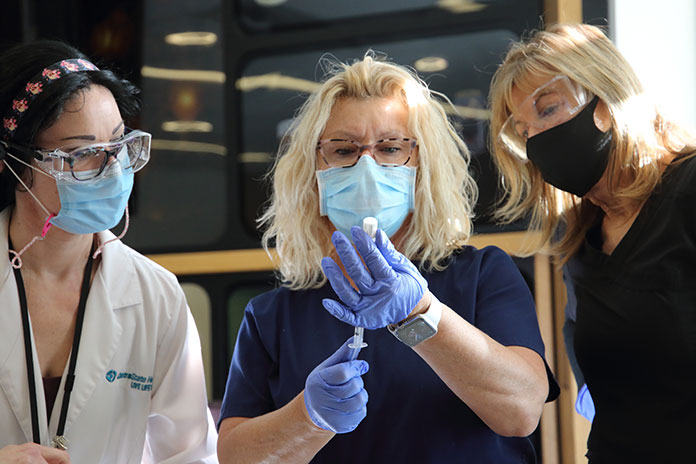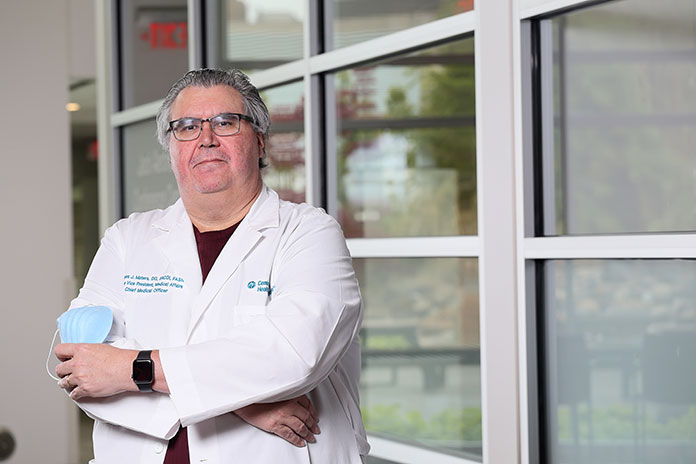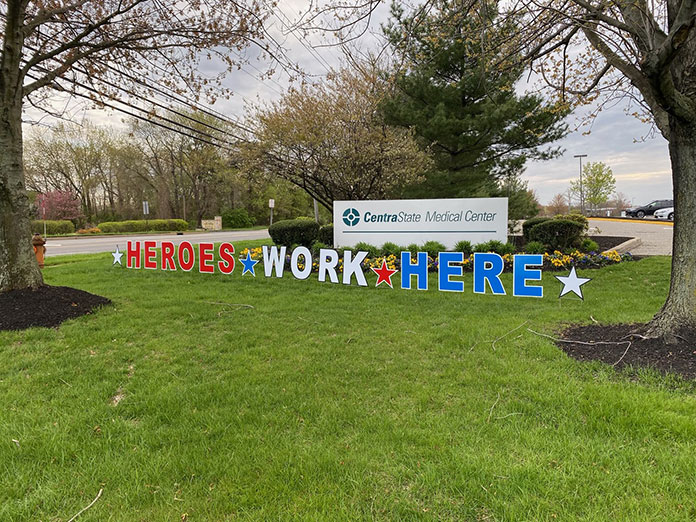
BRICK – Fatigue. Trouble sleeping. Brain fog. Loss of smell or taste. Heart palpitations. Fever. Hair loss. Joint or muscle pain. Lung issues. Depression. Anxiety. Digestive problems.
Most people who contract COVID-19 recover within weeks, but some “long-haulers” suffer for weeks and months with some of the symptoms listed above.
“I don’t like to use the term ‘long haulers,’ as much, but ‘COVID recovery,’” said Dr. James Matera who is the Chief Medical Officer at CentraState Medical Center.
He and Dr. Todd Cooperman, a physician on staff whose specialty is physical medicine and rehabilitation, launched a program at the hospital last week for people suffering with post-COVID symptoms.
“Our goal is to really try to focus on a lot of the things we are seeing in our patients with COVID once the acuity of the disease is gone,” he said. “We’re seeing a lot of long-term symptoms that are focused around multiple areas.”
As many as one-third of all COVID patients suffer from post-COVID symptoms, said Dr. Cooperman.

“We’re looking to help these patients to navigate the course of this new illness,” he said. “It’s obviously something that’s new to all of us, but the number of patients has our attention, and we really can’t wait until we have all of the answers to start helping these patients.”
It can be very disconcerting for people who are suffering with post-COVID symptoms, Dr. Cooperman said.
“They often feel like they don’t know which direction they should be guided towards, and very often patients may feel lost or confused, and no one really has answers to these symptoms they’re having,” he said, “and that only compounds the way they’re feeling.”
The program would rely on the most recent evidence-based medical literature that is coming out that has helped previous patients,” Dr. Cooperman said.
It would also help patients have a sense of validation for what they’re feeling – that it’s not all in their heads, he added.
Oftentimes there are no specific hard findings from medical tests of patients who suffer from brain fog, severe fatigue, headaches, reduced endurance and shortness of breath, so physicians treat the symptoms as they continue to learn what causes post-COVID symptoms, he said.
Symptoms can be ubiquitous and different for everybody, so treatment is more direct when dealing with a direct organ, added Dr. Matera.
“For instance, post-pulmonary symptoms can last for a while, and can result in lung scarring which potentially could be a very long-term thing,” he said.

“This is the amazing thing about this disease – the medical aspect of treating it, we are learning in real time, which makes it more difficult to pinpoint what the long-term effects will be,” Dr. Matera said. “That data will come as time goes on.”
He said COVID-19 is a baffling and frustrating disease because of how fast patients can deteriorate and the range of people it affects.
“We’ve seen patients with multiple risk factors not get very sick and others who had minimal risk factors get sick and die,” he said.
Dr. Matera warned that fully-vaccinated people can still carry the COVID-19 virus and transmit it to someone else, who could get the disease.
Some 15 to 20 percent of their current patients have gotten “breakthrough” infections, meaning they got the disease after being fully vaccinated.
“The vaccine never said you wouldn’t get COVID, but it did tout that you would be less ill, so knock on wood, we have not seen a lot of critical patients,” he said.
During the first round of COVID infections last year, there were 48 patients in their 26-bed ICU. Now there is only one, Dr. Matera said.
For more information on post-COVID Syndrome treatment, visit centrastate.com/services/post-covid-syndrome-treatment/







